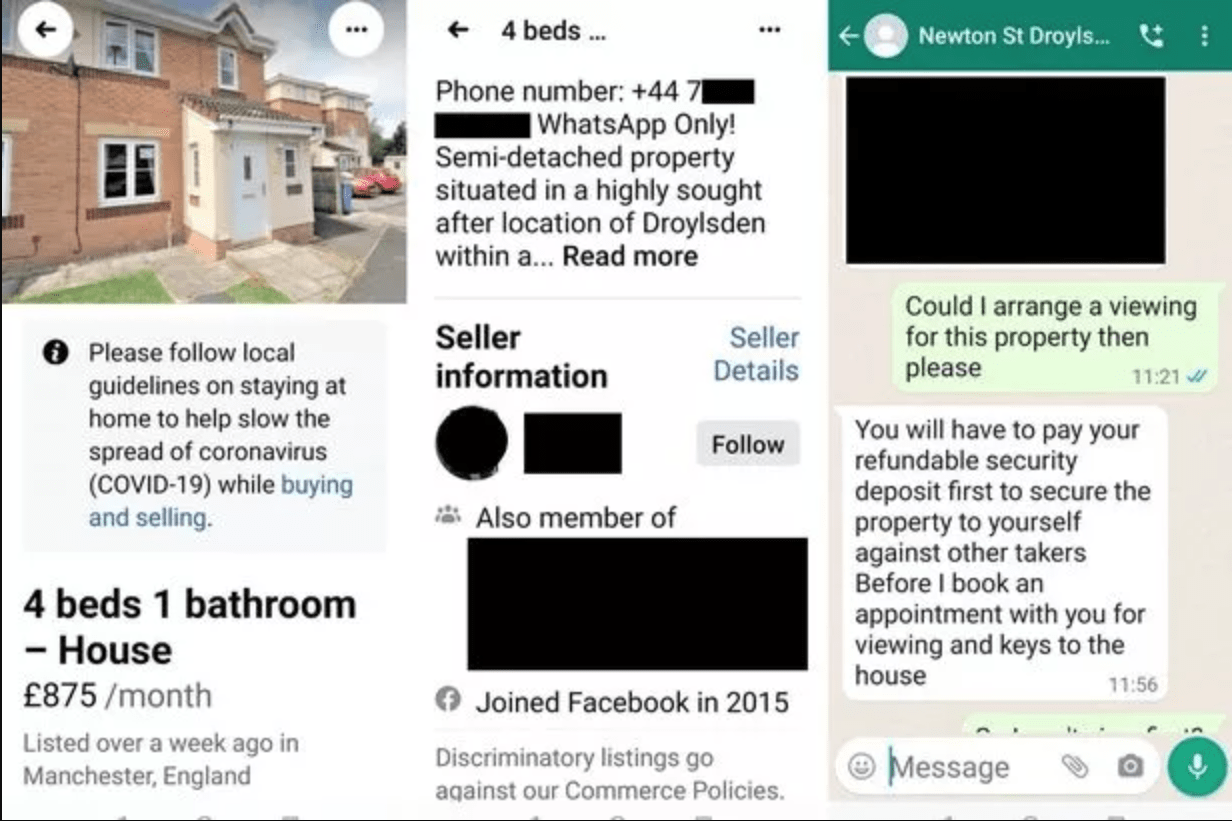In a recent exposé, the BBC has uncovered a new property rental scam that has been targeting unsuspecting tenants through Facebook Marketplace and fake accommodation booking sites. Referred to as an “advance rent payment scam,” this version of the scheme is particularly insidious and difficult to detect.
The modus operandi of this scam involves criminals stealing photographs from leading property portals, such as Rightmove, and using them to advertise genuine properties for rent on Facebook’s free-to-use marketplace. These fraudulent listings often showcase luxurious properties at unbelievably low rental prices, making them incredibly enticing for potential tenants.
Unfortunately, the allure of a dream home at an affordable price is nothing more than an elaborate ruse. Victims of this scam, having paid their deposits and rental fees, discover that the property they believed to be theirs actually belongs to someone else entirely.
One such victim is Mary Whitbread, a resident of Bournemouth, who fell prey to the scam after engaging in a virtual viewing and subsequently making the required payments. To her dismay, she arrived at the property on the designated moving day only to find a “for sale” sign adorning the house. Mary, like many others, was left homeless and thousands of pounds out of pocket.
The prevalence of this scam is on the rise, leaving an increasing number of people heartbroken and financially devastated. Phil Skorochod, an estate agent, acknowledges that this problem is becoming more widespread, emphasizing the devastating consequences for those who fall victim to it.
It is vital for individuals seeking rental accommodations to exercise caution and remain vigilant when dealing with online listings, particularly on platforms like Facebook Marketplace. Here are a few tips to help potential tenants avoid falling victim to such scams:
- Verify the legitimacy of the listing: Conduct thorough research on the property, including cross-referencing the details provided in the advertisement with reputable property portals. Look out for any discrepancies or red flags.
- Communicate directly with property owners or authorized agents: If possible, speak with the landlord or property agent over the phone or arrange a video call to confirm their identity and authenticity.
- Insist on physical viewings: Whenever feasible, insist on visiting the property in person to ensure that it genuinely exists and matches the description and photographs provided in the listing.
- Be cautious with upfront payments: Exercise extreme caution when asked to make substantial upfront payments before signing a lease or viewing the property. Avoid transferring money without conducting sufficient due diligence.
- Trust your instincts: If something seems too good to be true, it probably is. Trust your gut instincts and be skeptical of listings that offer luxurious properties at exceptionally low prices.
- Report suspicious listings: If you encounter a suspicious property listing, report it to the relevant authorities, such as the local law enforcement agency or the platform where the scam was discovered.
By adopting these precautions and being vigilant, potential tenants can mitigate the risk of falling victim to such scams. It is crucial to spread awareness about these fraudulent practices to ensure that innocent individuals are not left homeless and financially devastated by the ruthless actions of these criminals.
In response to the BBC investigation, Facebook has pledged to enhance its monitoring mechanisms and work diligently to identify and remove fraudulent property listings from its platform. However, it is a shared responsibility between online platforms, authorities, and users to combat such scams effectively.
Together, by remaining cautious, informed, and proactive, we can protect ourselves and others from the perils of sophisticated property rental scams, ensuring that the dream of finding a suitable home remains a safe and secure reality.
